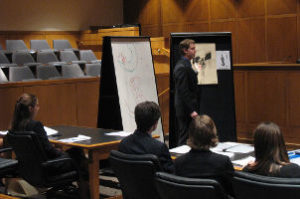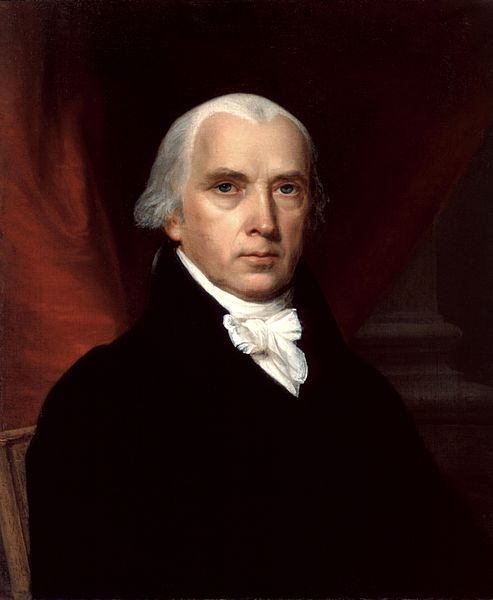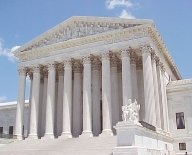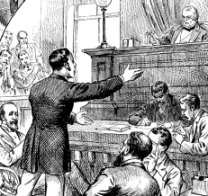Double Jeopardy Clause
The Double Jeopardy Clause is one of the clauses in the 5th Amendment to the US Constitution which provides many safeguards to the citizens of the United States. The safeguards mentioned in this Amendment have mostly to do with protecting people from unjust charges and trials by the government. The Clause reads like this:
"Nor shall any person be subject for the same offence to be twice put in jeopardy of life or limb."
The 5th Amendment Double Jeopardy Clause guards American citizens against three primary things. First, a person cannot be prosecuted for the same offense a second time once they have been acquitted, or judged innocent, by a court a first time. Second, no one can be prosecuted a second time for the same offense, after they have already been found guilty in a previous trial. Thirdly, no one can receive multiple punishments for the same crime.
The Double Jeopardy Clause was added to the Bill of Rights' 5th Amendment for several primary reasons, which all have to do with limiting the government's power to abuse and harass individuals. This clause prevents the government from using its vast resources to wear people down by pulling them into court over and over again until it gets what it wants. The Double Jeopardy Clause is also designed to protect innocent people from costly, emotional and disturbing consequences of continuing criminal trials.
This clause guarantees that the state cannot ignore the outcome of a trial and start a new one just because it does not like the outcome of the first trial. It also places limits upon how much latitude a prosecutor has in filing charges against people.
Finally, the Double Jeopardy Clause guarantees that judges cannot place multiple punishments upon a convicted person that are not authorized by the Congress.
History of the Double Jeopardy Clause

The 5th Amendment's principle against Double Jeopardy has its roots in English common law. The idea that people could not be tried and punished for the same offense more than once had come to be a commonly held principle in the English legal system by the colonial period. Often, though, the principle was abused by the King. If acquitting the defendant was judged to be against the royal wishes, sometimes the case could be retried by a different court or in a different manner. Under English law, the double jeopardy protection was also only applied to capital punishment crimes where the penalty was death. Lesser crimes did not have double jeopardy protection.
American colonial legislators quickly added double jeopardy prohibitions into their laws. They found it inherently unfair to try someone or punish someone twice for the same thing, or to allow the government to continually try the same case until it got the verdict it wanted.
Massachusetts was the first colony to provide protection with a double jeopardy clause. Its colonial charter stated, "No man shall be twise [sic] sentenced by Civil Justice for one and the same Crime, offence, or Trespasse." The colonial Massachusetts legislature extended the protection of its double jeopardy clause to all crimes, not just capital crimes. The Massachusetts charter established a precedent for the other colonies as well. By the time the Bill of Rights was added to the Constitution, all thirteen states had provisions adding double jeopardy prohibitions to their state constitutions.
Double Jeopardy Clause - The 5th Amendment

James Madison proposed twenty amendments to the Constitution during the session of the First Congress on June 8, 1789. These amendments were necessary to keep the nation together. Many people in the Anti-Federalist party believed the Constitution did not guarantee enough protection of people's individual natural rights. They refused to accept the Constitution unless a Bill of Rights was added to it.
A Bill of Rights is a guarantee to the people that the government will not violate certain listed rights. The Federalist party supported the Constitution as it was written, but they came up with a compromise known as the Massachusetts Compromise, because the Massachusetts Federalists came up with the plan.
The Massachusetts Compromise promised the Anti-Federalists that if they would accept the Constitution and send a list of recommended amendments to the Constitution to the First Congress, both parties would work together to add amendments that would sufficiently guarantee protection of everyone's natural rights. James Madison had studied everyone's proposed amendments and came up with twenty that he thought were the most universally desired. You can read more about the Bill of Rights' Purpose here.
You can also read James Madison's entire June 8, 1789 speech to Congress, in which he proposed twenty amendments to the US Constitution, here.
Because the idea that double jeopardy was wrong was so widely held by the colonists, when James Madison presented the Double Jeopardy amendment to
Congress, many representatives rose to argue that the wording was not strong enough. Madison had worded his Double Jeopardy Clause like this, "No subject shall be subject, except in cases of impeachment, to more than one punishment, or trial for the same offense."
Especially troublesome was Madison's insertion of the phrase "or trial" into the amendment. Some representatives argued that the use of this phrase would prevent people from receiving a retrial if they had been convicted improperly in their first trial. Eventually the phrase was left out and the Congress and the States voted to make the 5th Amendment Double Jeopardy Clause, as we know it, law.
Double Jeopardy Clause in everyday life
Over the years, the Supreme Court has had to interpret how the 5th Amendment Double Jeopardy Clause should be applied in various circumstances. The Court has said that the the phrase "of life or limb" cannot be taken literally, that is, that the ban on Double Jeopardy is applied in all cases, whether or not the defendant's life could be taken if convicted.
At the time the 5th Amendment was written, most serious crimes were punished with death. It was also common for body parts to be cut off as a punishment, hence the "or limb" phrase. Since these things are no longer acceptable punishments to society, the Court has applied the Double Jeopardy Clause in other ways. The Court now says that all types of crimes where a punishment is involved require consideration of the ban against Double Jeopardy.
Double Jeopardy Clause - Dual sovereignty
 Supreme Court Building
Supreme Court BuildingUse of the 5th Amendment's ban on Double Jeopardy is subject to what is known as the "dual sovereignty" doctrine. This doctrine states that a person can be tried for the same crime twice, if he is being tried by more than one distinct, sovereign government. Practically speaking, this means that a person could be tried by the federal government and by a state government for the same crime. Both entities are distinctly sovereign units that have their own sets of laws and their power derived from different sets of people. No one, however, can be tried twice by the same state, or twice by the federal government. By the "dual sovereignty" principle, someone such as Timothy McVeigh, the Oklahoma City bomber, could have been tried for murder in both state courts and in the federal court because both sovereign entities have murder laws. Ultimately, he was tried by the federal court only.
The "dual sovereignty" doctrine explains why the Los Angeles police officers accused of beating Rodney King were tried twice. They were first tried in a California county court and found innocent. Later, they were tried in a federal court, where some were convicted of assault.
Using the "dual sovereignty" doctrine's reasoning, a person could be tried more than once for the same crime by different states. For example, if someone stood in one state and shot a gun at someone and killed them in another state, he could be tried for murder in both states and this would not violate the Double Jeopardy principle.
The Double Jeopardy Clause only applies in criminal cases, not in civil cases. Criminal cases involve punishment for a crime and are prosecuted by the federal government or by a state government, civil cases are meant to financially compensate victims of crime. This explains why OJ Simpson was tried twice. Simpson was acquitted of murder in a federal criminal trial, but he was found guilty in a state civil trial, in which he had to pay damages to the alleged victims' families. This did not violate the ban on Double Jeopardy, according to the Supreme Court, because he was tried by a federal criminal court and a state civil court. He could not, however, have been tried twice by the state, or twice by the federal government.
Double Jeopardy Clause - The final judgment test

The Double Jeopardy prohibition applies only when a final judgment has been made against a defendant. If a final judgment has not been made, the defendant is not placed in "jeopardy." This means there are several situations in which a final judgment is not made, where a second trial of the same alleged crime can occur.
For example, a second trial can be held if the first trial ended in a mistrial, because the person was not subject to a final judgment. Most cases that are dismissed for insufficient evidence can not be tried again because a final judgment was made that there was no evidence that justified convicting the person. Retrials after the first trial has been reversed do not violate the Double Jeopardy principle because the verdict in the first case was thrown out. Retrials are also allowed if the jury is deadlocked.
The 5th Amendment Double Jeopardy Clause only applied to the federal government when it was originally written. However, through the 14th Amendment's Due Process Clause, the prohibition against Double Jeopardy has now been incorporated against the States. This means that the states must now abide by the Double Jeopardy Clause and cannot punish people twice or try them twice for the same crime.
You can read about several interesting and significant Fifth Amendment Court Cases dealing with the Double Jeopardy Clause here.
Return to the 5th Amendment here.
Other 5th Amendment clauses:Grand Jury Clause
Grand Jury Exception Clause
Self-incrimination Clause
Due Process Clause
Eminent Domain Clause
Preamble to the Bill of Rights
Learn about the 1st Amendment here.
Learn about the 2nd Amendment here.
Learn about the 3rd Amendment here.
Learn about the 4th Amendment here.
Learn about the 5th Amendment here.
Learn about the 6th Amendment here.
Learn about the 7th Amendment here.
Learn about the 8th Amendment here.
Learn about the 9th Amendment here.
Learn about the 10th Amendment here.
Revolutionary War and Beyond Home
Like This Page?
© 2008 - 2022 Revolutionary-War-and-Beyond.com Dan & Jax Bubis












Facebook Comments